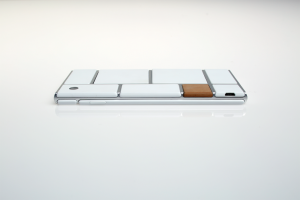Google Could Release Modular Smartphones as Early as 2015, For as Cheap as $50

A report from Time this morning indicates that a new brand of modular smartphones from Google, as part of Project Ara, could arrive in early 2015 for as low as $50 at retail. Though you might not be getting the type of phone you’re after for a price that minimal.
Google’s Advanced Technology and Projects Group, which is working on the phones to make them consist of small, interchangeable chunks of hardware, hopes to finish a functional prototype in a few weeks, the report says. Additionally, if they prove successful in their attempts, preparation for a consumer version will kick off soon.
The company also intends to offer a very low-cost option, at around $50, which would be less “smart” than you might hope for a smartphone. More specifically, the report says it’ll only include a Wi-fi card, not a cellular one – sort of taking the “phone” piece out of the smartphone equation. But since the device is modular, adding a cellular chip for service should be part of the whole scheme.
As The Verge points out in their discussion on the topic, these low-cost, slowly upgradeable devices could prove popular in small, emerging smartphone markets overseas. And this is even more tangible when you get into the different sizing options of the lineup, which range from mini, to medium to jumbo.
Each of these different size backbones will be built by Google, while all of the modular pieces could come from 3rd party manufacturers, like LG, HTC or Samsung, for example. But from this report alone, we don’t have any confirmations about partnerships just yet.
Customization is also a big part of the Project Ara blueprint, as Google hopes to allow users to customize the look of their device as much as the parts that make it up.
The thickness of the phones could run as thick as 10mm, slightly larger than the leading thin phones of today like the iPhone 5S and Samsung Galaxy S4. But they’re not so thick as to trump older, fatter iPhones like the iPhone 3GS. Then again, thickness might not be too bad a feature, since who knows what might happen when you drop one of these modular devices – will they shatter to pieces?
In Time’s report, Google says that its modules will be secured in place to keep this from happening, and will require some form of disengagement through the use of an app on the phone, which will free it from the structure.
That’s all we unofficially know about Project Ara, but we should learn more soon if talks of April conferences surrounding the project come to fruition. Until then, stay tuned.